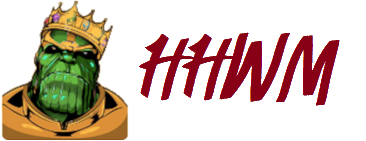
Major Food and Beverage Companies Call Out Marijuana Copycats
Last week, a coalition of major food and beverage companies (self-identified as “consumer packaged goods companies”) asked Congress to do more about the growing number of copycat THC edible products and counterfeit trademarks piggybacking off of their well-known items. The letter was signed by the Consumer Brands Association and fourteen other associations and companies, including the likes of General Mills, PepsiCo., Post Consumer Brands, and Kellogg Company.
“Children are increasingly threatened by the unscrupulous use of famous brand logos, characters, trademarks and trade dress on THC-laced edible products. While cannabis (and incidental amounts of THC) may be legal in some states, the use of these famous marks, clearly without approval of the brand owners, on food products has created serious health and safety risks for consumers, particularly children, who cannot tell the difference between these brands’ true products and copycat THC products that leverage the brand’s fame for profit. While law enforcement focuses on addressing illegal sales, this unscrupulous practice has pointed out a gap in existing law – the widespread online sale of packaging that leverages these famous brands.”
The letter cites three prominent examples (Trix Edibles, Cheetos Edibles, and Stoneo) with screenshots of news articles below them such as “Marijuana edibles disguised as popular candy, snacks popping up in Florida schools” and “Toddler hospitalized after eating marijuana-laced snack.” Notably, the examples of Trix Edibles and Cheetos Edibles don’t even list a manufacturer and are mostly indistinguishable from the real packaging of those items, all of which is part of the problem.
The group is proposing an amendment to the SAFE SHOP Act, a law that imparts liability for advertising, sale or distribution of goods under counterfeit trademarks, when the goods implicate health or safety. Under the proposed amendment, liability would also attach where a “famous” mark is used similarly. The definition of a “famous mark” already exists under federal statute, referring to brands that are “widely recognized by the general consuming public of the United States as a designation of source of the goods or services of the mark’s owner.”
The group argues that the sole inclusion of liability for “counterfeit marks” doesn’t reach these bad actors, which is why they continue to proliferate in the market today. They sign off the letter by urging support because deterring the sale of these copycat THC items clearly implicate the health and safety of children:
“Unfortunately, [the current] language does not prohibit sale of the above packaging and products due to the technical definition of counterfeit marks. This should be amended to include ‘famous’ marks, a term already defined in U.S. code, to extend this protection and deter the sale of these copycat THC items which clearly ‘implicate health and safety’ of children. This change is critical because it closes a loophole in the existing language to address a critical health and safety issue. We urge your support.”
Preventing underage marijuana consumption is not a new goal by any means – there is broad consensus that precautions should be implemented to ensure children don’t mistakenly consume cannabis. And ultimately, this is a “no no” under relevant copyright laws anyway. For more articles we’ve written on that before, check out:
Source link












